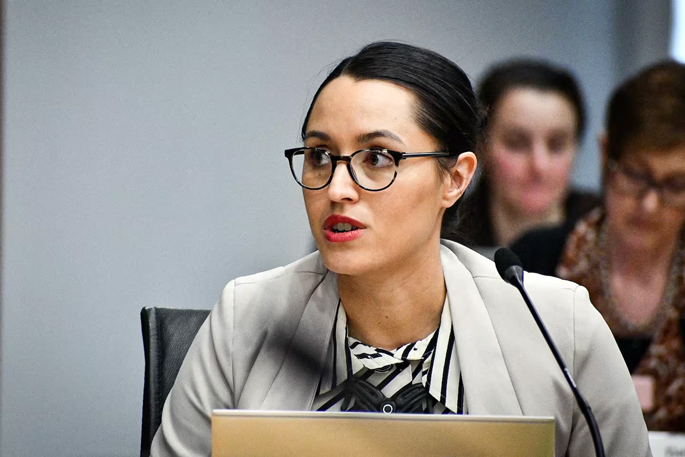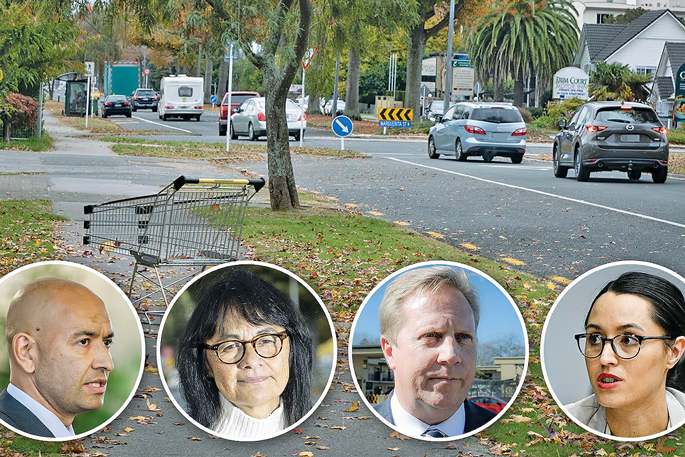The Government says there will be no more emergency housing motels in Rotorua after the end of next year and it will scrap the Rotorua Housing Accord and re-write a new plan.
The new approach would see fewer than 10 contracted emergency housing motels seeking to be re-consented when consents expire at the end of this year.
News the Government planned to extend the use of homeless motels for another two years sparked fury from residents last month who said they felt “blindsided and betrayed” after election promises to end their use within two years.
 Emergency housing motels on Fenton Street in Rotorua have angered local residents. Photo / Andrew Warner.
Emergency housing motels on Fenton Street in Rotorua have angered local residents. Photo / Andrew Warner.
A Housing and Urban Development senior official emailed the ministry’s re-consenting intention to resident representative from the Restore Rotorua lobby group, Carolyne Hall.
The email said it needed more time to finish building public houses for the homeless and would seek two-year consent extensions - taking the consenting period out to the end of 2026.
Hall said it was her view promises to end or improve emergency housing made during the 2022 council and 2023 general election campaigns had been forgotten. She reminded the Government it had promised to end emergency housing motels within two years - which was the end of 2025.
But Rotorua Mayor Tania Tapsell and National Party MP Todd McClay, a Cabinet minister, said they knew nothing about the ministry’s intention, saying there had been no Cabinet decision for such an extension.
McClay criticised his own government ministry’s communication, saying it showed “very bad process”.
The joint approach
Meetings have since been held between the parties and, following questions from the Rotorua Daily Post, a joint statement was issued from Associate Minister of Housing Tama Potaka’s office on Tuesday night.
Potaka said in the statement the Government was committed to ending the long-term use of contracted emergency housing motels in Rotorua by the end of 2025.
“The current Rotorua Housing Accord is not fit for purpose and needs to be reviewed in light of this Government’s priorities and commitments.”
 Rotorua Mayor Tania Tapsell signing the Rotorua Housing Accord. Photo / Ben Fraser.
Rotorua Mayor Tania Tapsell signing the Rotorua Housing Accord. Photo / Ben Fraser.
The accord was signed by former Housing Minister Megan Woods, Tapsell and iwi representatives in November 2022 and sought to “progressively reduce the use of motels for emergency housing in Rotorua to near zero”.
Potaka said chief executives for the ministry and the Rotorua Lakes Council would work on a plan that aligned with the Government’s intention to end emergency housing next year.
Part of that would include ensuring there were “fewer contracted emergency housing motels being re-consented” than at present and “curtailing the use of emergency housing by people coming from outside the district”.
“Progressing this mahi will mean some motels will be needed for a transitional period before people can move to more suitable accommodation, including while houses are built by Kāinga Ora, iwi and others.”
He said families with children who have been in emergency housing motels for longer than 12 weeks would be prioritised on the social housing register.
“Giving these whānau a better opportunity to build healthy stable lives for themselves and future generations is an essential part of this Government’s goal of reducing the number of households in emergency housing across the country by 75 per cent by 2030.”
 Rotorua Mayor Tania Tapsell. Photo / Laura Smith.
Rotorua Mayor Tania Tapsell. Photo / Laura Smith.
Tapsell said in the statement that Rotorua deserved to have certainty that long-term use of motels for emergency housing would end as soon as possible.
“There is mutual agreement that emergency housing in Rotorua should first and foremost be for those who call Rotorua home. Our discussions have been positive and it’s clear we will deliver better outcomes by working together.”
She said it was hoped to confirm this month further action to improve the current situation.
McClay said in the statement this was a first step towards “undoing the harm that has been done to Rotorua’s reputation over many years”.
“Ending the long-term use of emergency housing motels within two years was an important election promise and one that the coalition Government is committed to.”
What’s the ministry saying?
The Rotorua Daily Post asked the ministry if it intended to still seek two-year extensions for the 10 contracted emergency housing motels and whether it admitted it was wrong to announce its intention in an email to a resident representative before discussing it with the council and MPs. It was also asked to respond to McClay and Tapsell’s criticisms about its handling of the situation.
In a statement, it said it had “no comment to make other than it is committed to working with the community to get the best housing outcomes” for locals.
The statement said talks were under way about re-consenting and the ministry’s chief executive Andrew Crisp had met McClay and Tapsell to discuss their concerns. The statement said the ministry was “strengthening our lines of communication” with Rotorua Lakes Council.
Residents respond
Restore Rotorua - the lobby group that has openly opposed emergency housing and fought against consents being issued - also issued a statement, saying it had met McClay and Tapsell and was confident they would pursue the re-consenting issue with urgency.
“During both meetings it was very clear that neither Todd McClay nor Tania Tapsell had been previously made aware of [the ministry’s] intentions.”
Restore Rotorua said it would meet with the ministry ahead of its re-consenting application.
“The previous independent commissioner hearing, where the consents were granted for two years, came at a huge financial cost to taxpayers, Rotorua ratepayers, and Restore Rotorua supporters. Why [does the ministry] want to put the Rotorua community through this again?”
The statement said its question to the ministry was: “When will the use of Rotorua motels for emergency housing stop?”
By the numbers
The following is information from the Rotorua Temporary Housing Dashboard as of March this year.
How many motels are used for emergency housing? There are 18. There are 10 contracted emergency housing motels, six non-contracted motels used for those with emergency housing special needs grants, one Housing and Urban Development-contracted motel and one transitional housing motel.
How many households are in Rotorua emergency housing? There are 252, up from 249 in February. There are 189 households in contracted emergency housing motels and 39 in non-contracted motels.
Who are they? There are 234 adults in contracted emergency housing and 294 children. In the non-contracted motels there are 45 adults and 15 children. Māori make up 83 per cent of those in contracted motels and 77 per cent of those in non-contracted motels.



0 comments
Leave a Comment
You must be logged in to make a comment.